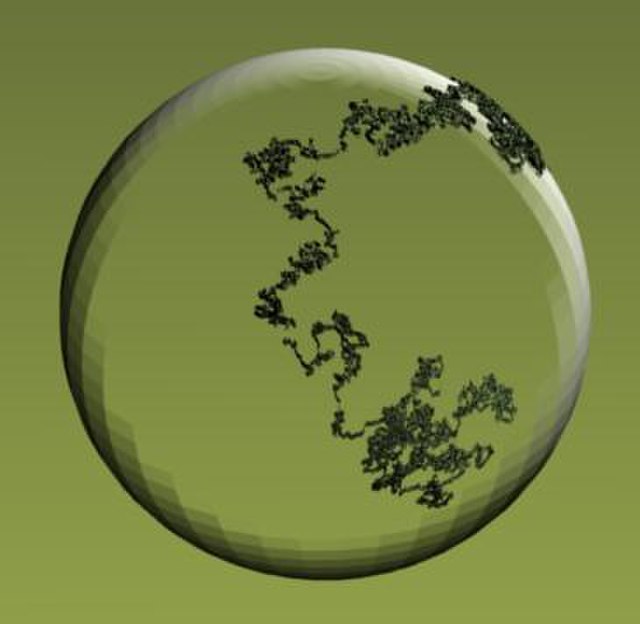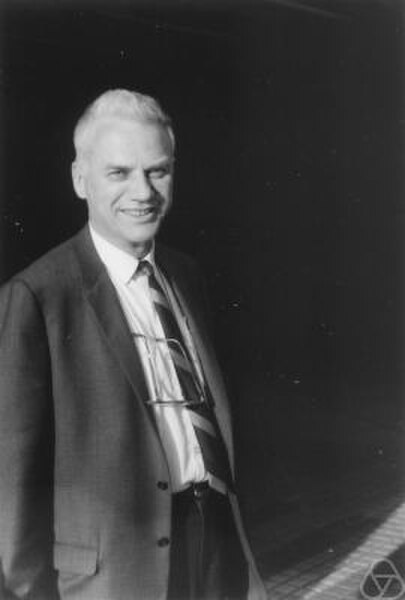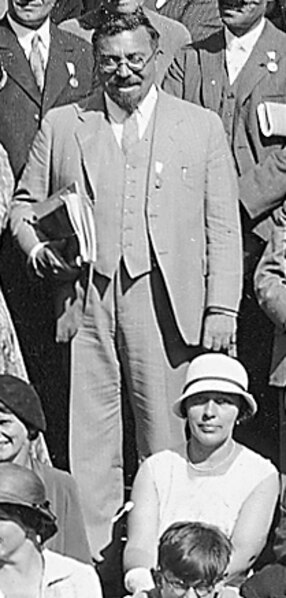Andrey Andreyevich Markov was a Russian mathematician best known for his work on stochastic processes. A primary subject of his research later became known as the Markov chain. He was also a strong, close to master-level chess player.
Markov in 1886
Markov
Markov's headstone
In probability theory and related fields, a stochastic or random process is a mathematical object usually defined as a sequence of random variables in a probability space, where the index of the sequence often has the interpretation of time. Stochastic processes are widely used as mathematical models of systems and phenomena that appear to vary in a random manner. Examples include the growth of a bacterial population, an electrical current fluctuating due to thermal noise, or the movement of a gas molecule. Stochastic processes have applications in many disciplines such as biology, chemistry, ecology, neuroscience, physics, image processing, signal processing, control theory, information theory, computer science, and telecommunications. Furthermore, seemingly random changes in financial markets have motivated the extensive use of stochastic processes in finance.

A computer-simulated realization of a Wiener or Brownian motion process on the surface of a sphere. The Wiener process is widely considered the most studied and central stochastic process in probability theory.
Mathematician Joseph Doob did early work on the theory of stochastic processes, making fundamental contributions, particularly in the theory of martingales. His book Stochastic Processes is considered highly influential in the field of probability theory.
Norbert Wiener gave the first mathematical proof of the existence of the Wiener process. This mathematical object had appeared previously in the work of Thorvald Thiele, Louis Bachelier, and Albert Einstein.






